Got Mild to Moderate Hearing Loss? These Over-the-Counter Hearing Aids Can Help
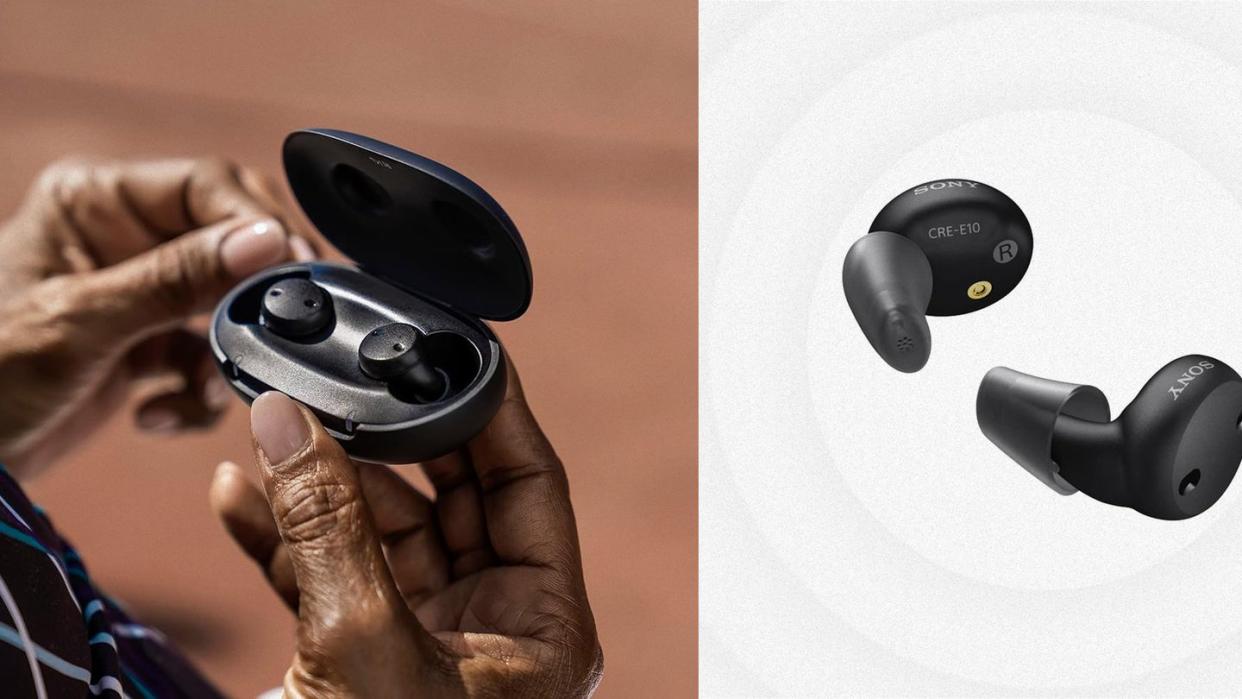
"Hearst Magazines and Yahoo may earn commission or revenue on some items through these links."
If you have mild to moderate hearing loss, October 17, 2022 is a significant date. It’s when over-the-counter hearing aids hit the market and the U.S. became the only country in the world to sell non-prescription hearing aids to the public.
Fast-forward a year, and innovation in this emerging market is advancing fast. Technology is moving toward integration into regular wireless earbuds (or embedded in your glasses), though it’ll likely take a few more years to get there. For now, there are a handful of OTC hearing aids worth considering.
“In the last few years, there’s been an understanding of the implications of hearing loss on human health,” says Frank Lin, MD, PhD, director of the Johns Hopkins Cochlear Center for Hearing and Public Health.
As we age, our brains have to work harder to process information. Evidence shows that prescription hearing aids can reduce cognitive decline by nearly 50 percent, making hearing more important for your brain health than you think. OTC hearing aids are effective, too, but finding the right one isn’t as simple as picking out a color you like. It can take your brain months to adapt to these devices, so good customer support, a generous return policy, and an expansive warranty are incredibly important.
Lin was instrumental in getting legislation passed that paved the way for OTC hearing aids to become a reality. “Five to 10 years ago, hearing loss was seen as [part of] getting older,” Lin says. But now, people with mild to moderate hearing loss can address it for thousands less than a prescription hearing aid, and without an in-person visit to an audiologist.
Ahead, we review the best over-the-counter hearing aids available now, followed by expert advice to prepare you for making a purchase.
How We Selected
All of the over-the-counter hearing aids we considered for this story are from a handful of brands with a track record of turning out high-quality audio devices. At the time of writing, there are only four over-the-counter hearing aids we’re confident recommending for people with hearing loss, so we’ll keep this guide updated as the industry changes and evolves.
During our research, we dug into the latest studies on the impact of hearing loss—and OTC hearing aids, at that—on public health. We also leaned on our experience covering similar technology and confirmed our findings with other expert sources, using our conversation with Lin to better understand the emerging technology, its impact, and the efficacy of OTC hearing aids.
Enhance Select 100 OTC Hearing Aid
Over-ear hearing aids are more conspicuous than earbuds and may not suit all wearers, but at the time of this writing, they offer superior performance.
Jabra’s 100-day free trial period return policy for all its products and the brand’s three-year warranty (included with the premium service plan only) is unmatched in the OTC hearing aid market.
The upgraded plan also covers you for three years of remote support for adjustments with audiology professionals. That’s a big benefit, especially since financing plans are available for those who qualify.
In terms of features, the Jabra Enhance Select 100s are waterproof and offer Bluetooth streaming and a wireless charging case. For about $300 more, Jabra’s Enhance Select 200 model adds hands-free calling capability.
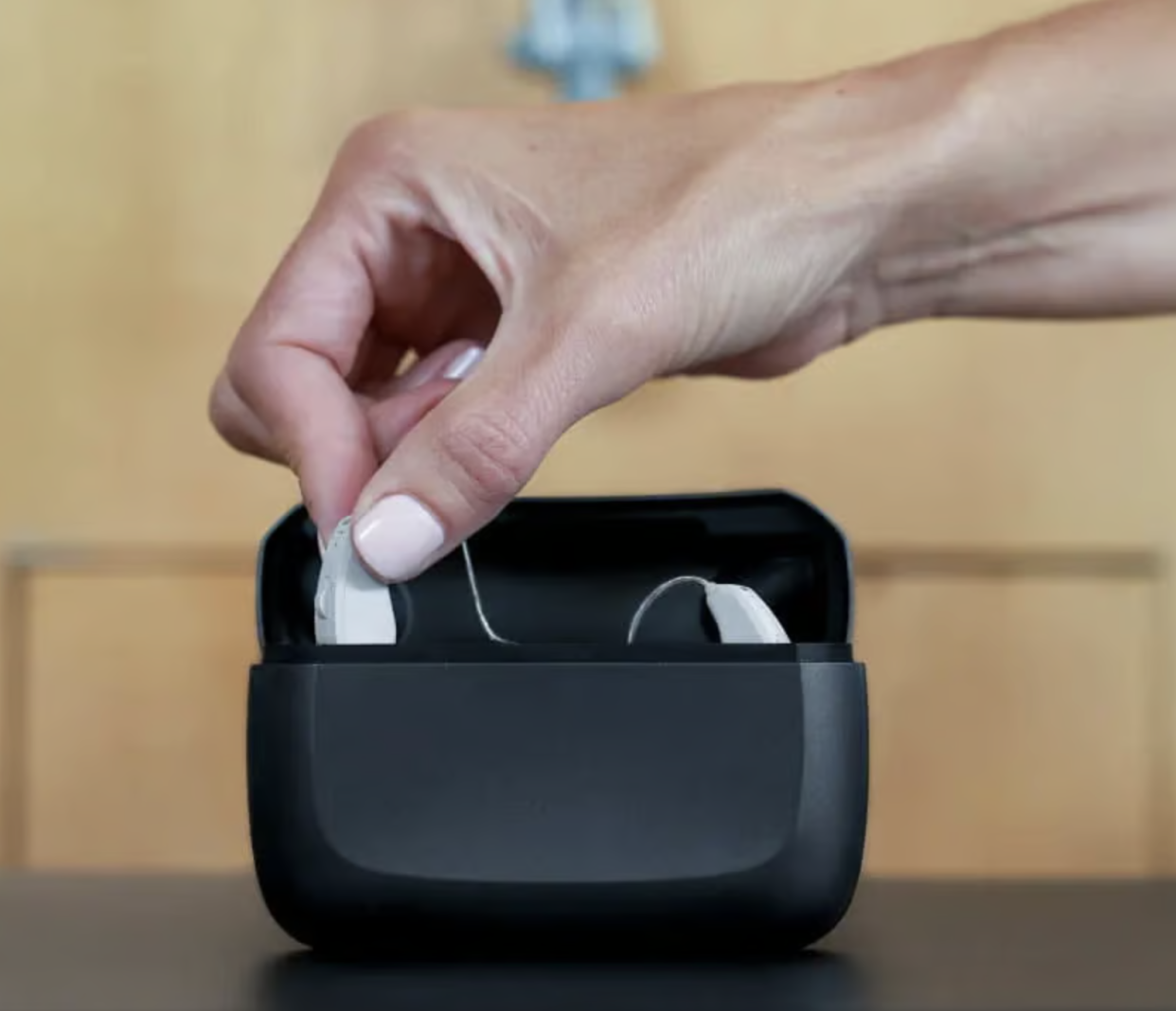
Enhance Select 100 OTC Hearing Aid
jabraenhance.com
$1395.00
B2 OTC Hearing Aids Powered by Bose
There’s a lot to like about these over-the-counter hearing aids from Lexie. For starters, they’re priced at about $1,000 and offer excellent sound quality, which is no surprise considering audio comes from Bose.
Conspicuous over-ear design aside, the main potential drawback is that the case doesn’t have wireless charging capability and needs to be plugged in with a USB-C cable.
If you want to save a bit, you can get the previous model for about $150 less, though they don’t have a rechargeable battery.
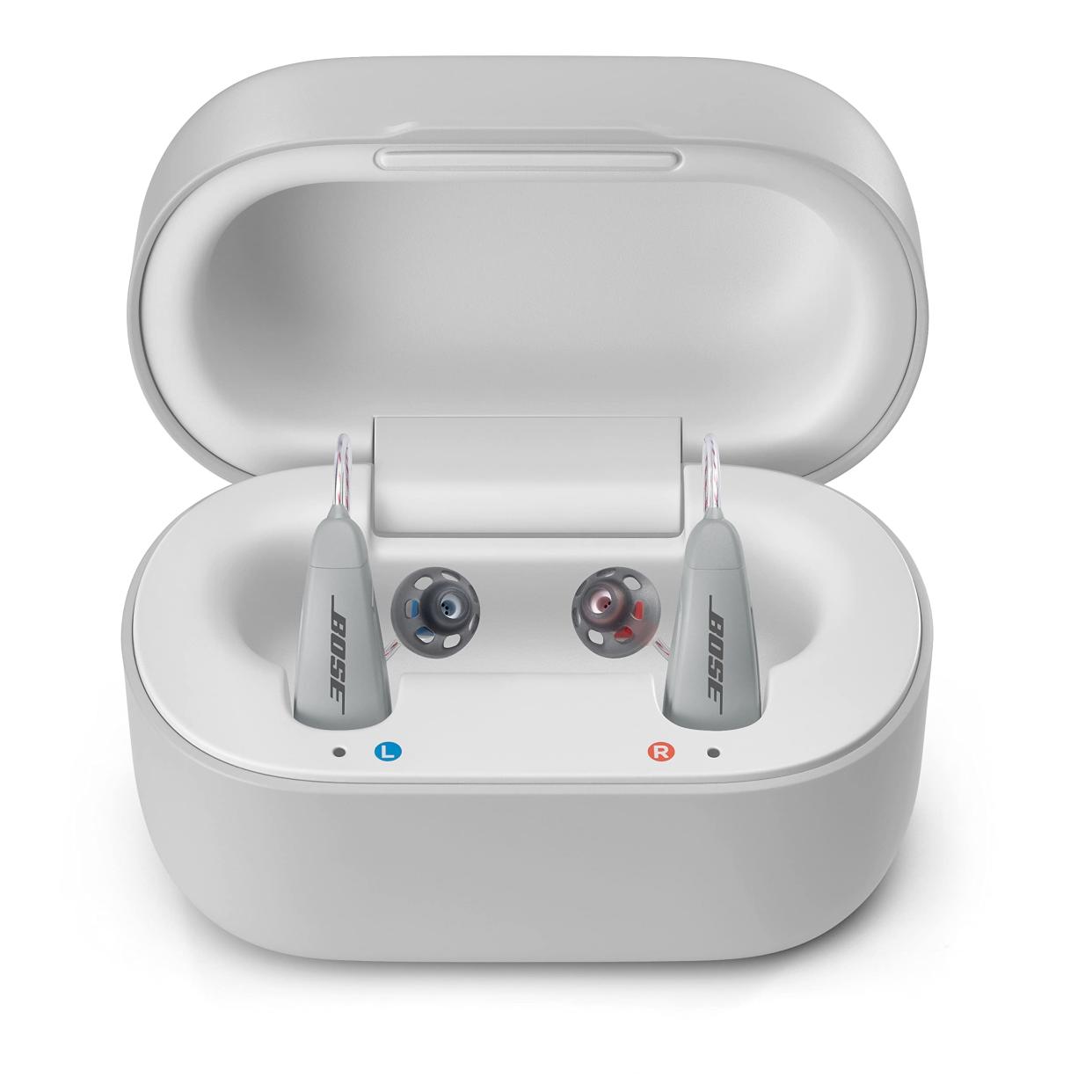
B2 OTC Hearing Aids Powered by Bose
amazon.com
$999.00
Self-Fitting OTC Hearing Aid
Sony’s first foray into the over-the-counter hearing aid market includes these earbuds, which offer the same great music-listening experience, solid battery life, and sleek design you’d expect from any of the brand’s devices.
What’s different about these supercharged earbuds is more advanced sound quality and noise reduction, plus they automatically optimize to your environment so you don’t have to fiddle with different settings.
The OTC hearing aids are waterproof and come with a wireless charging case in addition to four sets of ear sleeves in different sizes.
Unfortunately, the 30-day return policy and one-year warranty aren’t any better than other Sony products.
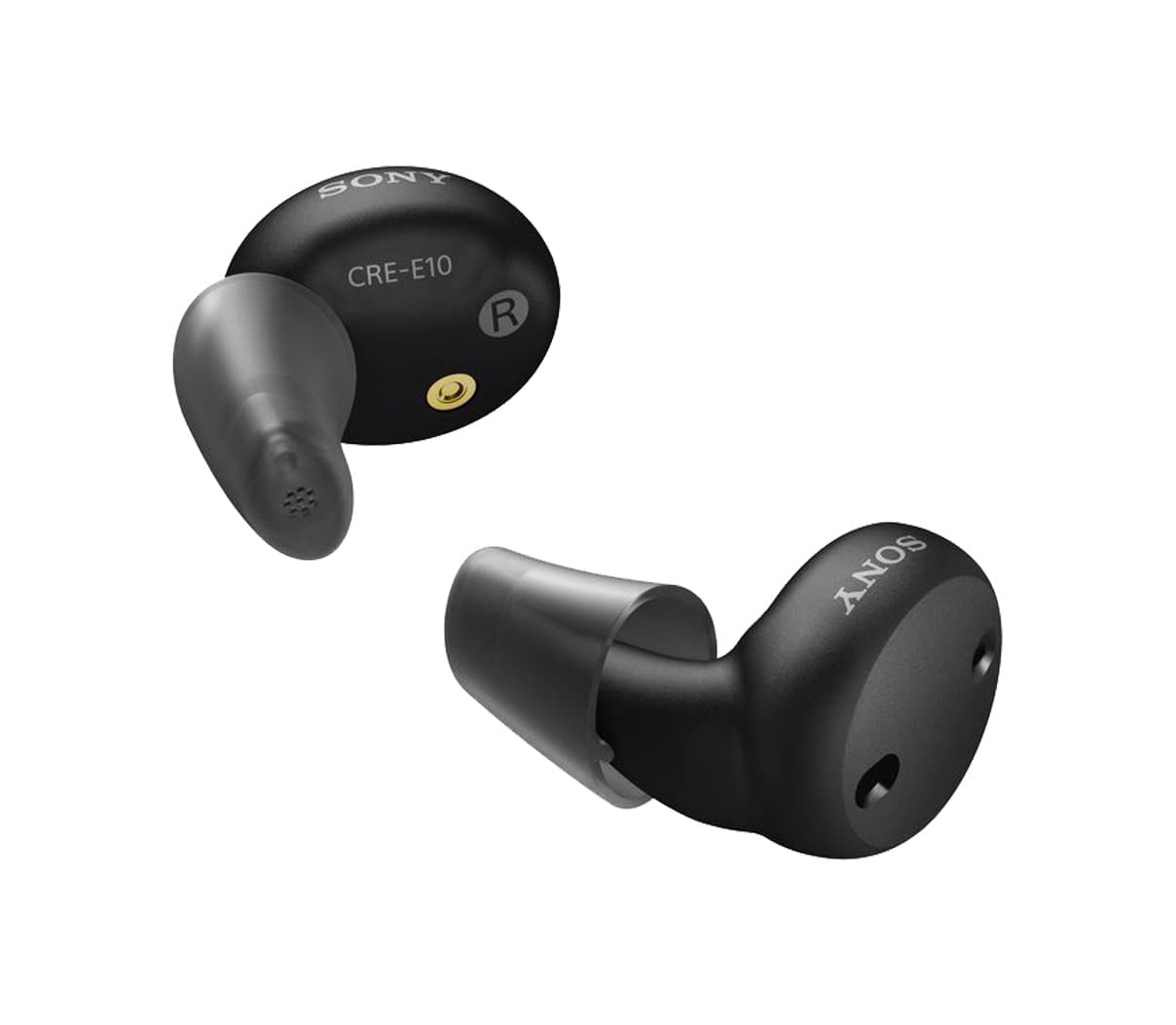
Self-Fitting OTC Hearing Aid
amazon.com
$1298.00
Hearing PRO Self-Fitting OTC Hearing Aids
At $500, if your hearing loss is mild, HP’s Hearing Pro OTC hearing aids are worth a look. The earbuds come with a relatively generous 60-day trial period (if you buy them through the company’s website) and a two-year warranty.
Some features rival pricier models, like multiple listening modes for different environments or situations. Noise cancellation and call quality are solid. They also have extra clout as a 2023 CES innovation awards honoree.
But they aren’t waterproof and don’t charge wirelessly inside the case—an especially tough drawback since the battery isn’t nearly as robust as other OTC hearing aids we considered, with an estimated eight hours of listening and only five streaming.
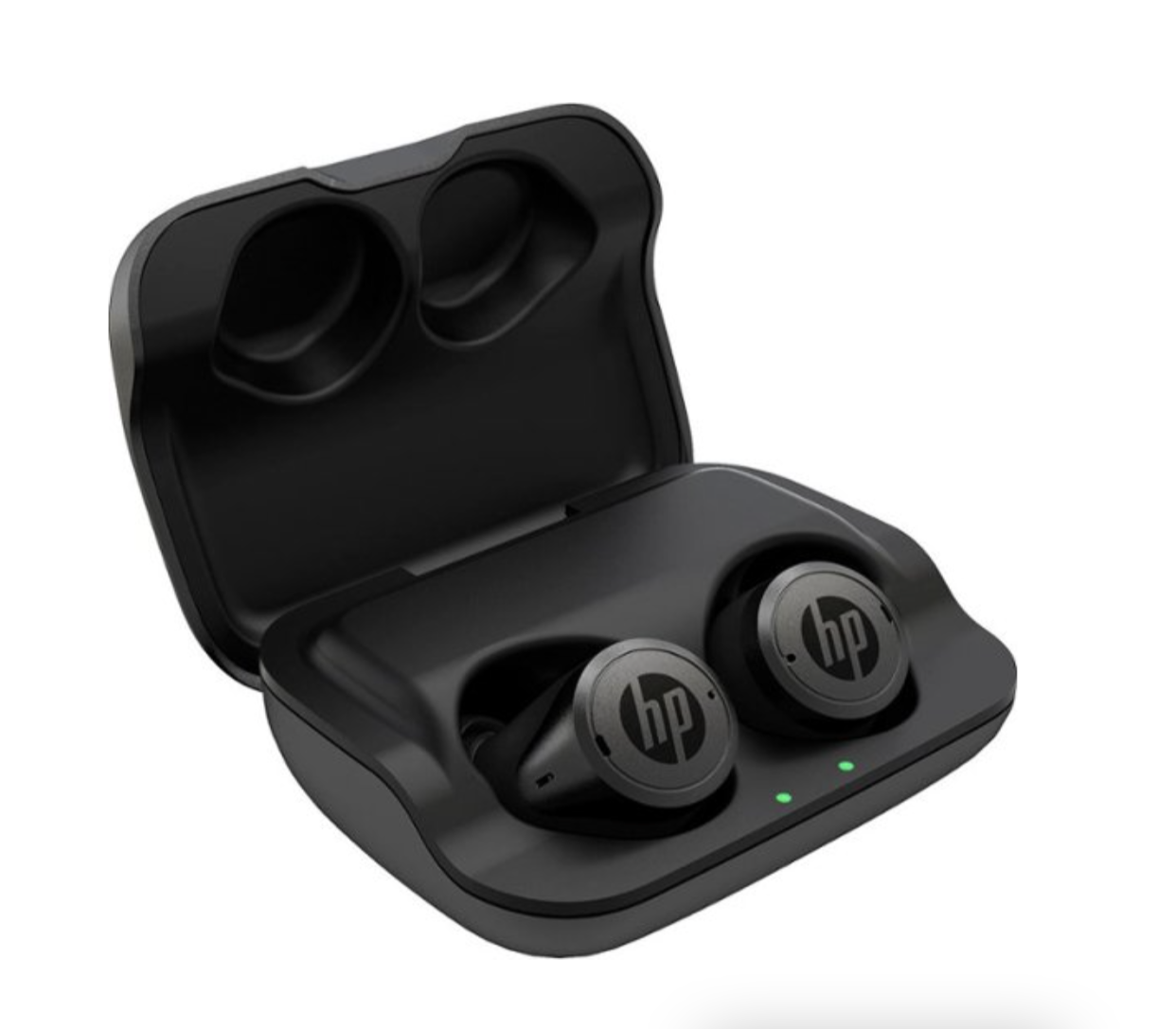
Hearing PRO Self-Fitting OTC Hearing Aids
bestbuy.com
$499.00
What to Consider When Shopping for Over-the-Counter Hearing Aids
Hearing Number
It’s always a good idea to get your hearing checked by a doctor, but you can also do a hearing test on your own using your Apple phone or tablet.
Your Hearing Number is a metric on a scale of 0 to 100 decibels (dB). The higher the number, the louder sound needs to be for you to hear it. Generally speaking, the number goes up as you age, and you can track it over time, just like keeping tabs on your heart rate and blood oxygen levels.
Type
All of the OTC hearing aids we recommend are self-fitting, meaning they offer ways to customize the devices to your ear without an in-person visit to a doctor or audiologist. To some extent, this applies more to over-ear models than earbuds.
Cost
A pair of high-quality OTC hearing aids costs $500 to $2,000, whereas the average cost of prescription hearing aids hovers around $4,600.
Returns and Warranties
As mentioned above, it can take several months for your brain to start “using” your OTC hearing aid to its full effect, so if you’ve never used a hearing aid before, you may want to prioritize a longer return window.
The most generous return policy currently available is from Jabra, which offers a 100-day trial period. HP Hearing Pro offers a 60-day trial, but most other brands cap it at 30 days.
Jabra offers a three-year warranty if you opt for its premium service plan, and HP Hearing Pro offers two years. Most other brands offer a one-year warranty only.
Battery
High-end OTC hearing aids typically have rechargeable batteries, and some come with a wireless charging case—certainly a handy feature. Models with replaceable batteries are usually more affordable.
Just like other wireless audio devices, battery life depends on use. For example, active noise cancelling drains the battery faster than if the feature is turned off. The same holds true for OTC hearing aids, though you can expect anywhere from eight to 26 hours of battery life from these devices.

You Might Also Like
